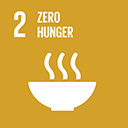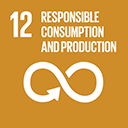
Methane is a potent greenhouse gas produced by ruminant animals during the digestive process, known as enteric fermentation. Globally, this process accounts for a significant share of emissions, and in Switzerland, it forms a major part of agricultural greenhouse gas outputs, with methane from livestock contributing to 55% of the sector's total emissions. Addressing this challenge requires innovative solutions that balance environmental goals with the economic realities of farming.
This project works with dairy farmers to reduce methane emissions by mixing a natural feed additive into the cows’ feed regimen. Cattle farmers participating in the Mooh project add Agolin®, a carefully balanced combination of essential oil compounds in their natural form, to their cows’ feed regiment.

participating in the project

to help make better purchasing decisions

avoided since the project start
In its first monitoring period in 2022, the project avoided 6,763 tCO2e emissions, with Agolin® fed across more than 5 million animal days. By the end of the project in 2028, it aims to avoid a total of approximately 100,000 tCO2e emissions. In addition to reducing methane emissions, the project supports a more responsible food system in Switzerland by enhancing awareness of environmental challenges in farming, increasing milk yields, and providing financial incentives for sustainable practices. This collaborative effort contributes to the global fight against climate change while supporting the resilience of local dairy farming communities.